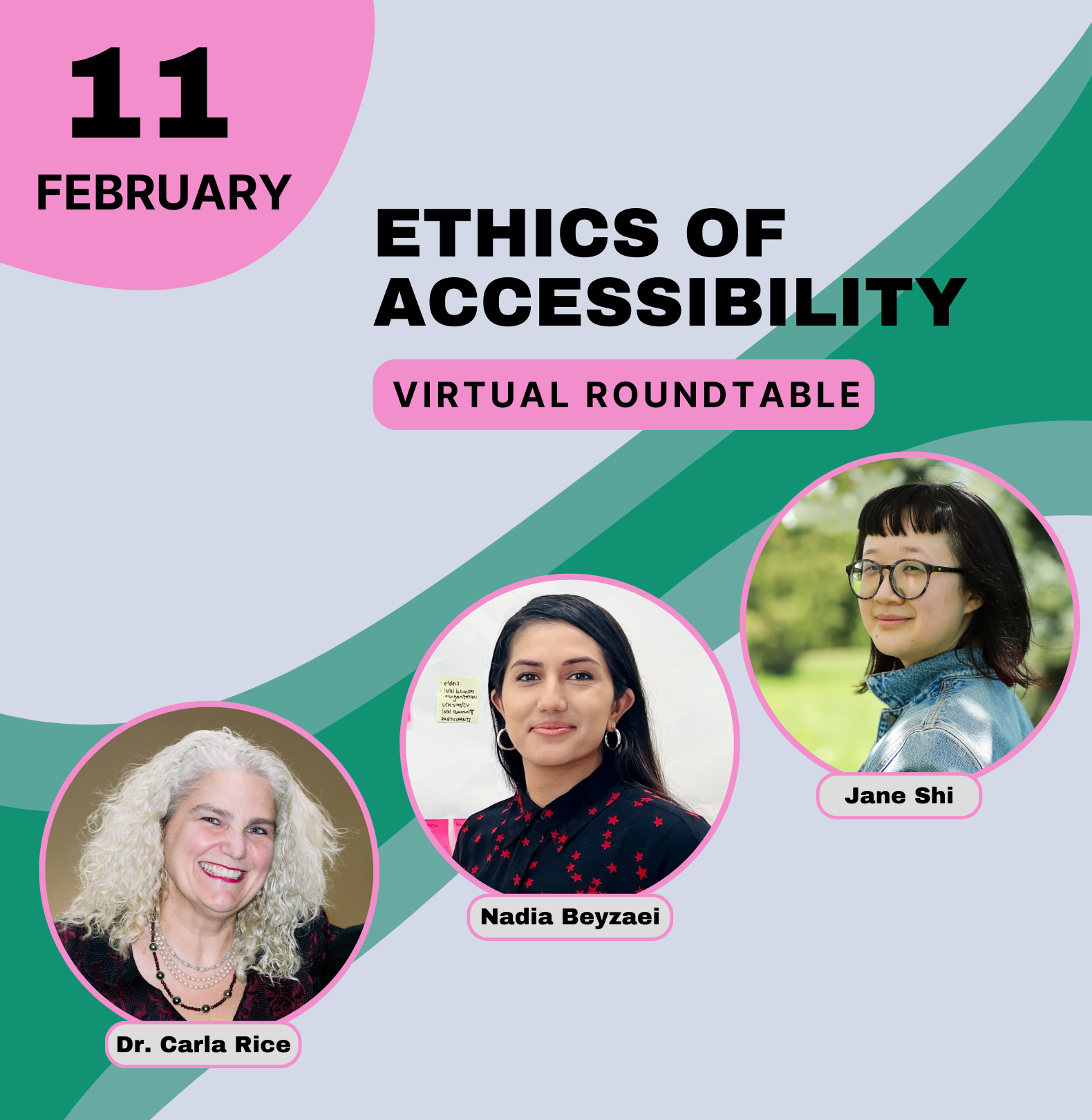Ethics of Accessibility in Research Design + Creative Practice

How can researchers and community-engaged artists centre accessibility and disability justice in developing their research or creative methods? A virtual roundtable on ethics of accessibility, presented by the ECU Research Ethics Board.
Researchers and practitioners across the arts, humanities, social and health sciences increasingly recognize the accessibility barriers that limit project design, recruitment, and participation. As disability justice advocates and scholars emphasize, many projects either exclude participants who do not meet normative criteria, or else fail to establish appropriate conditions for fulsome and equitable participation.
How can researchers and community-engaged artists centre accessibility and equitable participation of disabled participants, when selecting research or creative methods, designing their recruitment materials, or establishing consent processes? What responsibilities should researchers and creative practitioners have to disabled participants, whose experiences or stories they solicit or share?
This virtual roundtable, presented by ECU's Research Ethics Board, features three participants speaking through lenses of crip theory, health design principles, and disability advocacy in the arts.
Presenter Bios:
Dr. Carla Rice:
Dr. Carla Rice is the Canada Research Chair in Feminist Studies and Social Practice at Guelph University. She is founder of Re•Vision: The Centre for Art and Social Justice, a cutting-edge research creation centre, which also houses the Revisioning Differences Media Arts Laboratory (REDLAB), a state-of-the-art media-lab. The centre and lab seek to explore the efficacy and power of creative methods to advance social well-being, equity, and justice in Canada and beyond, with focus on dis-enfranchised individuals. At its core, Dr. Rice’s research is about theorizing the significance of community and about studying innovative ways of building community. In this, she emphasizes arts-informed participatory research methods and knowledge mobilization as potentially efficacious ways of engaging, creating, and extending community to advance personal and institutional transformation and social justice.
Nadia Beyzaei:
Nadia Beyzaei is a designer, researcher, and educator who works in spaces of health and community engagement. As a freelance design consultant, she specializes in translating complex healthcare challenges into human-centered design solutions that utilize co-design methods of engagement. In her previous roles as Lead UX Designer with Ipsiroglu Lab and Manager of the Health Design Lab, Nadia led design research and social innovation projects related to Indigenous health, aging, substance use, and complex care. Nadia is also an instructor in the Faculty of Design + Dynamic Media at Emily Carr University.
Jane Shi:
Jane Shi is a poet, writer, and editor living on the occupied, stolen, and unceded territories of the xʷməθkʷəy̓əm (Musqueam), Skwxwú7mesh (Squamish), and səlil̓ilw̓ətaʔɬ (Tsleil-Waututh) peoples. She currently organizes Crips for eSims for Gaza, a disabled mutual aid effort to connect Palestinians in Gaza to the Internet, co-founded Masks4EastVan, and is on the editorial collective of Room Magazine. Her debut poetry collection is echolalia echolalia (Brick Books, 2024). She wants to live in a world where love is not a limited resource, land is not mined, hearts are not filched, and bodies are not violated.
This roundtable is facilitated by Dr. Alla Gadassik, associate professor of Media History + Theory and Chair of the Research Ethics Board (2023-2026) at Emily Carr University.
The roundtable is supported by the ECU Research Ethics Board, the NSCERC EDI Capacity Building Grant, and the Decolonization + Indigenization Fund.